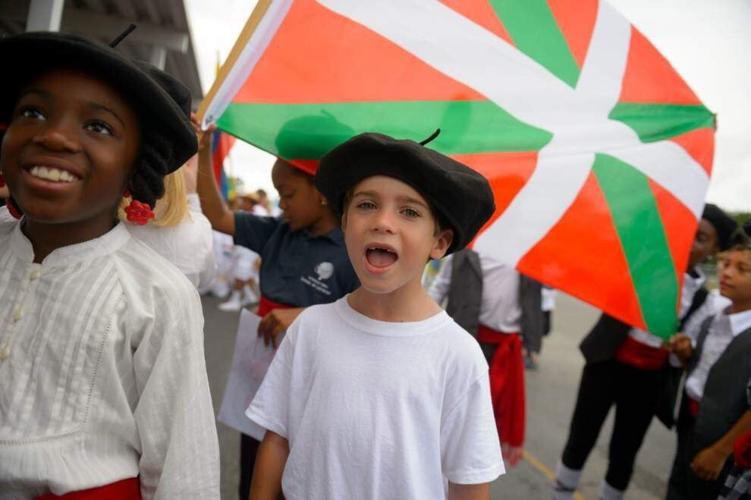New Orleans is famous for its French and Spanish influences, but one less-publicized community has quietly shaped the city’s culture as well: the Basques.
One Times-Picayune reader, intrigued by tales of werewolves and soldiers, asked Curious Louisiana to explore the history of the Basque presence in the city. Mark Dispenza, a writer-director, sent Curious Louisiana a question about the Basque community in New Orleans after working on a shoot.
Dispenza was researching his short horror film, a rougarou story set in 1949 Acadiana, when he read “Werewolf Stories,” by Nick Redfern and Brad Steiger.
“It contained legends of werewolves and shapeshifters from around the world,” Dispenza said. “One of the stories concerned a Basque community in eastern New Orleans that apparently terrorized a unit of British troops leading up to the Battle of New Orleans. They were angry with the Brits for disrupting their livelihoods with all of that conflict and went all loup garou on them.
"What aroused my interest most was the Basque reference, as I was completely unaware of Basque history in New Orleans.”
Prominent Basques make their mark on New Orleans
Several prominent Basques have made their mark on the city. In a New Orleans Basque historian named Michel-Antoine Goitia-Nicolas said famed pirate and smuggler Jean Lafitte, known for helping defend New Orleans during the War of 1812, was of Basque heritage.
While today the influence of this group is less well-known, traces of this identity can be found through last names.
Goitia-Nicolas attributed Basque origin to family names like Barbe, Begue, Chachere, Charbonnet, Gayarre, Goyeneche, Lacombe, Lemoyne, Mandeville and Marigny.
Brittany Powell Kennedy, senior professor of practice in the Department of Spanish and Portuguese at Tulane University, agreed.
“I think you probably have a lot of New Orleanians who have what they consider to be very strange last names that they think might be Spanish or French, but that are probably Basque,” Kennedy said.
Straddling the border of France and Spain
The region itself, straddles the border between France and Spain, with four of its seven historic provinces located in northern Spain and three provinces in southwest France. People of this region, used to life on the ports, were attracted to New Orleans’ booming maritime industry.
Kennedy said steady Basque migration into New Orleans occurred during the Industrial Revolution (1760-1840), when rapid-fire industrialization led to ships making frequent journeys to the Port of New Orleans.
“They're seafarers,” Kennedy said. “They're fishermen, and Basque fishermen find their way to various parts of the Americas throughout their history, the earliest being in Newfoundland in the 17th century.
"You have a lot of immigration from Basque country. There's a part of it that's on the Spanish side, and there's part of it that's on the French side. Both sides have immigrants for different reasons, but also just fishing and shipping."
"There’s a massive port in the Basque country. New Orleans was, and still is, one of the biggest ports in the U.S. And so a lot of Basque fishermen, specifically Basque shipmen, end up here and stick around.”
Building up the port and shipping industry
Kennedy said Emile Zatarain Sr., who built the spice and condiment business Zatarain’s, was another notable Basque influencer. Kennedy said Zatarain identified as a Spanish Basque, and had ties to the Pasai area, his family's original home. Others from the region have quietly built up the New Orleans port and shipping industry, living and working in the coastal south.
Kennedy described Basque immigrants in the 19th century as predominantly Catholic, insular and proud of their culture. The Basques are one of the oldest cultures in Europe, with roots in the Basque Country going back thousands of years. “They have their own language which is not related to any other language in the world," Kennedy said. "It's a language isolate. And they're very proud of the fact that they've managed to preserve this language."
Kennedy said Basque culture was likely clouded because American and British people living in the city probably classified people from the region as simply French or Spanish, without grappling with the complexities of their identity.
“I really think it's kind of a testament to when we think about the various groups that have been in the city," Kennedy said. "There are just a ton of influences, and maybe there are some that we don't see today.”


